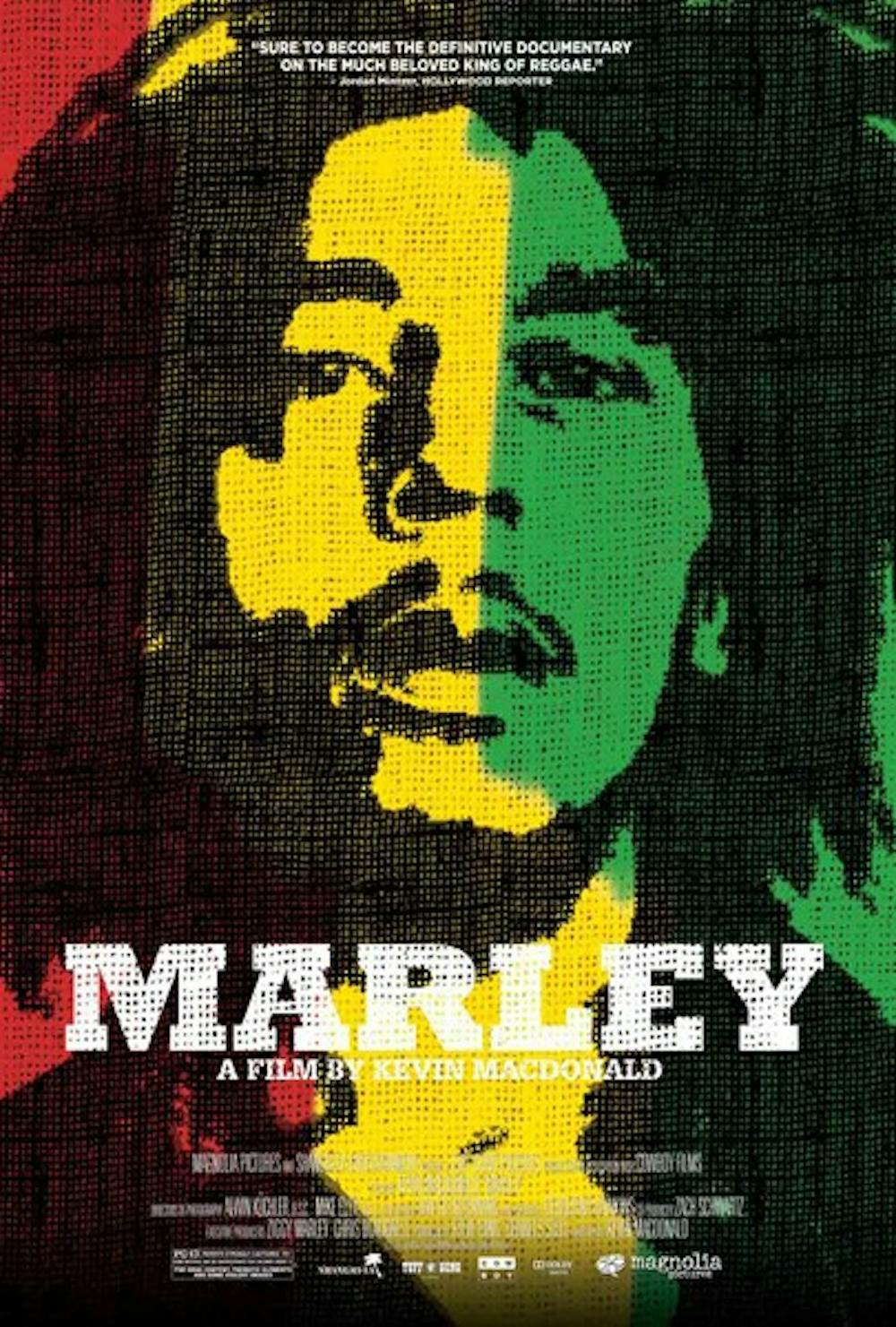Pitchforks: 2.5/5
Release date: April 20, 2012
Director Kevin Macdonald’s decision to release his documentary “Marley” on April 20 is hardly coincidental considering the reggae legend and notorious marijuana-smoker Bob Marley once sang, “Legalize it, don’t criticize it.”
The film took Macdonald years to produce as he tracked down many of Marley’s colleagues, friends, mistresses and distant relatives. The Oscar-winning director accepted the project after Martin Scorsese announced he could not fit it into his busy schedule.
Perhaps if Scorsese were the director of this documentary, it would have had some sort of creative aspect to it. The film is well over two hours, and though it is informational, it could put even the most enthusiastic fan to sleep.
Fans of the reggae star will be pleased to learn much about the philosophies Marley lived by. Because of Marley’s firm belief in the Rastafarian movement, the film touches on all of the bizarre beliefs and rituals Marley followed and how these practices affected his life. He legally took a wife, but also had 11 children with many different women.
The revealing topics discussed in the film wouldn’t be difficult to Wikipedia search “Bob Marley” and find just about the same amount of information. The documentary is hardly as educational as one would hope.
Disappointedly, the music of Marley is not discussed as much as it should have been. Never is it brought up what Marley was doing or thinking when he wrote songs as important as “Redemption Song” or “Three Little Birds.” The history of such songs is not spoken of, and in fact, the only time music is a topic of discussion is when the Wailers reminisce on when the band began.
Without the countless interviews that carry the film, “Marley” would be worthless. Once Macdonald found many of Marley’s friends and bandmates, he decided to let them be the ones to narrate the film and shares stories of the musician’s life.
A strong segment of the film that truly encapsulates the power of Bob Marley’s music came in the form of the “peace concert” Marley gave in Kingston that put an end to a civil dispute. The live footage of the massive concert Marley put on displayed the inexplicable power his music has to create peace and unity. The film relies on Marley’s inspiring and remarkable accomplishments, but it could have offered a deeper look into the musician’s life and psyche.
The ending credits show clips of people all over the world singing along to Marley’s song lyrics. The chorus of children and adults alike in various languages makes a powerful statement about the connection people everywhere have through Marley’s music.
The film has so much potential to be as unique and thrilling as the icon. Unfortunately, the documentary drags on too long and some segments and discussions could have gone withheld. The film claims to be an “intimate look” into the life of Marley, but instead just shares information true fans probably already knew about the musician.
“Marley” will not only be released in theaters, but will be streaming on Facebook for $6.99. Those celebrating the unofficial holiday tied to Marley this Friday will be pleased to hear they don’t have to leave their homes to view the film if they choose to see it.
Reach the reporter at jhgee@asu.edu
Follow us on Twitter or like us on Facebook. Click here to subscribe to the daily State Press email newsletter.





